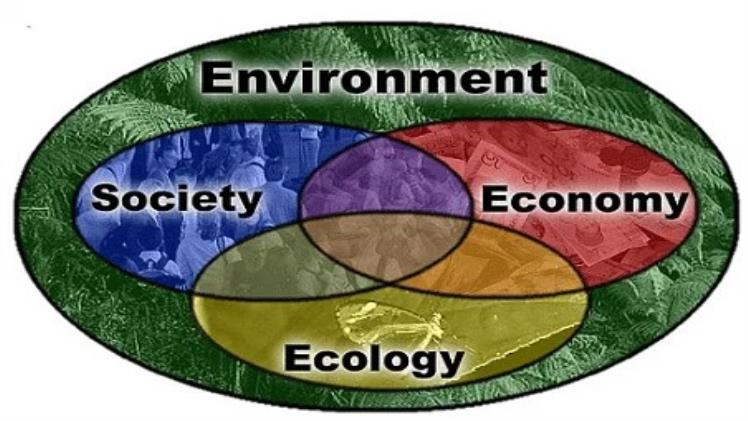Environment and Ecosystem

An environment is the physical setting and home for living things, as well as the set of factors and conditions necessary for their survival. It encompasses both individuals and communities of organisms which interact and function together in harmony.
Ecosystem is a dynamic network of living and non-living organisms that exist in an area at any given time. It consists of both biotic (living) components as well as abiotic (non-living).
A healthy ecosystem offers numerous advantages to humans. These include food, water, energy and clean air to name a few. Unfortunately, human activity is leading to the loss of biodiversity around the world and degrading its natural environment.
Furthermore, many of these ecosystems are vulnerable to climate change impacts. Through responsible management that draws upon sound ecological and biodiversity science, we can guarantee their continued function, provide essential services to people, and strengthen human resilience in the face of rapid environmental change.
Ecosystems differ in type, but typically consist of a biological community and its physical and chemical aspects. Examples of ecosystems include grasslands, forests, rivers and lakes.
Ecosystems can be devastated by natural or manmade disasters, such as fire, earthquakes and volcanic eruptions. These events may disrupt the life cycles of individual plants, animals and microorganisms or cause the death of entire populations. Furthermore, they disrupt nutrient flow through a system or contaminate water sources with organic contaminants.
Disturbances in ecosystems can take two forms: primary succession and secondary succession. With secondary succession, new plants and animals replace those lost to human activities such as conversion of forests into fields, construction of roads, or pesticide use.
visit for multiple topics: Topecommerc and tamilandanews
Despite these risks, some ecosystems can recover from disturbances and resume productive activity. However, the duration of this process depends on the severity and frequency of the disruption.
A healthy ecosystem can offer essential services to human societies and regulate atmospheric composition and other biogeochemical cycles. Thus, ecosystems play a crucial role in combatting global warming and climate change issues we are currently facing.
No matter how human civilization addresses the current climate challenge, ecosystems will remain essential in stabilizing atmospheric greenhouse gas concentrations and maintaining a consistent climate. The future of human civilization depends on effective protection and restoration of these resources – especially as we prepare for an imminent peak in GHG concentrations due to decarbonization.
